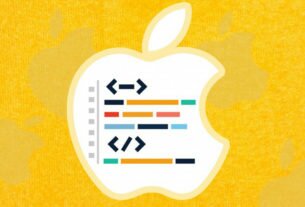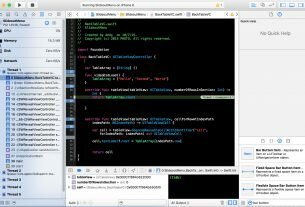Question or problem with Swift language programming:
There are a lot of stackoverflow threads regarding this topic, but I still didn’t find a good solution.
If the app is not in the background, I can check launchOptions[UIApplicationLaunchOptionsRemoteNotificationKey] in application:didFinishLaunchingWithOptions: call to see if it’s opened from a notification.
If the app is in the background, all the posts suggest to use application:didReceiveRemoteNotification: and check the application state. But as I experimented (and also as the name of this API suggests), this method gets called when the notification is received, instead of tapped.
So the problem is, if the app is launched and then backgrounded, and you know a notification is received from application:didReceiveNotification (application:didFinishLaunchWithOptions: won’t trigger at this point), how do you know if user resumed the app from by tapping the notification or just tapping the app icon? Because if the user tapped the notification, the expectation is to open the page mentioned in that notification. Otherwise it shouldn’t.
I could use handleActionWithIdentifier for custom action notifications, but this only gets triggered when a custom action button is tapped, not when the user taps on the main body of the notification.
Thanks.
EDIT:
after reading one answer below, I thought in this way I can clarify my question:
How can we differentiate these 2 scenarios:
(A) 1.app goes to background; 2.notification received; 3. user taps on the notification; 4. app enters foreground
(B) 1.app goes to background; 2.notification received; 3. user ignores the notification and taps on the app icon later; 4. app enters foreground
Since application:didReceiveRemoteNotification: is triggered in both cases at step 2.
Or, should application:didReceiveRemoteNotification: be triggered in step 3 for (A) only, but I somehow configured my app wrong so I’m seeing it at step 2?
How to solve the problem:
Solution 1:
OK I finally figured out.
In the target settings ➝ Capabilities tab ➝ Background Modes, if you check “Remote Notifications”, application:didReceiveRemoteNotification: will get triggered as soon as notification arrives (as long as the app is in the background), and in that case there is no way to tell whether the user will tap on the notification.
If you uncheck that box, application:didReceiveRemoteNotification: will be triggered only when you tap on the notification.
It’s a little strange that checking this box will change how one of the app delegate methods behaves. It would be nicer if that box is checked, Apple uses two different delegate methods for notification receive and notification tap. I think most of the developers always want to know if a notification is tapped on or not.
Hopefully this will be helpful for anyone else who run into this issue. Apple also didn’t document it clearly here so it took me a while to figure out.
Solution 2:
I’ve been looking for the same thing as you and actually found a solution that does not require remote notification to be ticked off.
To check whether user has tapped, or app is in background or is active, you just have to check the application state in
-(void)application:(UIApplication *)application didReceiveRemoteNotification:(NSDictionary *)userInfo fetchCompletionHandler:(void (^)(UIBackgroundFetchResult))completionHandler{
if(application.applicationState == UIApplicationStateActive) {
//app is currently active, can update badges count here
}else if(application.applicationState == UIApplicationStateBackground){
//app is in background, if content-available key of your notification is set to 1, poll to your backend to retrieve data and update your interface here
}else if(application.applicationState == UIApplicationStateInactive){
//app is transitioning from background to foreground (user taps notification), do what you need when user taps here
}
For more info check:
UIKit Framework Reference > UIApplication Class Reference > UIApplicationState
Solution 3:
According to
iOS / XCode: how to know that app has been launched with a click on notification or on springboard app icon?
you have to check for the application state in didReceiveLocalNotification like this:
if ([UIApplication sharedApplication].applicationState == UIApplicationStateInactive)
{
// user has tapped notification
}
else
{
// user opened app from app icon
}
Although it does not make totally sense to me, it seems to work.
Solution 4:
If somebody wants it in swift 3.0
switch application.applicationState {
case .active:
//app is currently active, can update badges count here
break
case .inactive:
//app is transitioning from background to foreground (user taps notification), do what you need when user taps here
break
case .background:
//app is in background, if content-available key of your notification is set to 1, poll to your backend to retrieve data and update your interface here
break
default:
break
}
for swift 4
switch UIApplication.shared.applicationState {
case .active:
//app is currently active, can update badges count here
break
case .inactive:
//app is transitioning from background to foreground (user taps notification), do what you need when user taps here
break
case .background:
//app is in background, if content-available key of your notification is set to 1, poll to your backend to retrieve data and update your interface here
break
default:
break
}
Solution 5:
I ran into this problem, too — but on iOS 11 with the new UserNotifications Framework.
Here for me it is like this:
- New Launch:
application:didFinishLaunchingWithOptions: - Received from a terminate state:
application(_:didReceiveRemoteNotification:fetchCompletionHandler:) - Received in Foreground:
userNotificationCenter(_:willPresent:withCompletionHandler:) - Received in Background:
userNotificationCenter:didReceiveNotificationResponse:withCompletionHandler:




